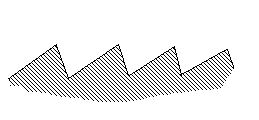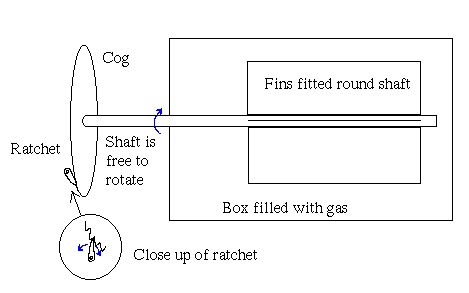
A close up of the saw tooth.
As the ratchet mechanism operates, the peg will bounce off the gear teeth. Every time it does this, the gear teeth will heat slightly. Eventually, the gear teeth will be as warm as the gas in the box. At this point, the peg of the ratchet mechanism will be bounced upwards by the heat of the gears quite regularly. (If we make the spring stronger so this will not happen then the molecular bombardment by the gas will not be strong enough to overcome the stiffer spring). Since the motion of the shaft is essentially random, if the ratchet peg is bouncing it will sometimes slip backwards instead of turning in the desired direction - the peg will then return to position on the gently sloped sawtooth and force the cog to move a large amount in the opposite direction. In fact, if the wheel is warmer than the gas in the box then the system will move in the opposite direction to that originally considered.
